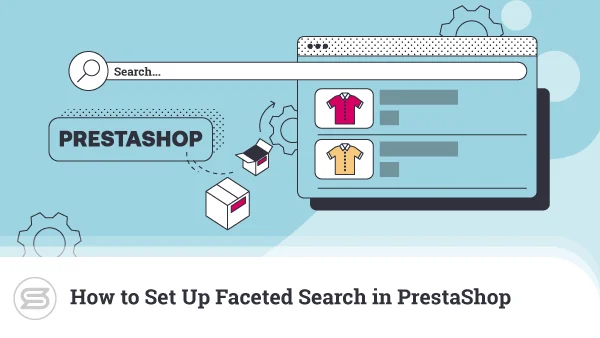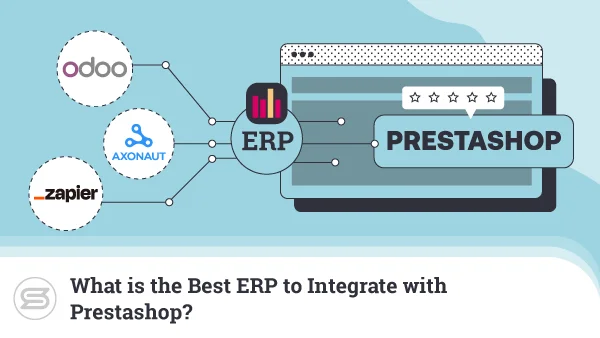With a global market value estimated to reach $6.5 trillion by 2023, ecommerce is one of the fastest-growing digital ventures today. More and more people are dipping their toes in online sales, and the range of website building solutions is logically expanding as well.
Today, we are comparing two of the most popular ecommerce apps – Magento vs Shopify.
What is Magento?
Magento is a standalone ecommerce platform that comes in multiple app versions. First introduced as a public beta in 2007 it has gained immense popularity over the years.
The ever-changing market factors mandated frequent reworks, and by 2015, Magento 2 was released. This new version was built to be more user-friendly, secure, and, best of all – suitable for mobile users.
A pivotal moment for the solution came with the acquisition of Magento by Adobe in 2018. Today, Magento offers an open-source and commercial version for anyone interested in an ecommerce website.
What is Shopify?
At first glance, some might call Shopify an ecommerce platform, while others may see it as a website builder. The truth is, the platform aims to satisfy both markets.
Introduced in 2004 by Tobias Lütke, Daniel Weinand, and Scott Lake, Shopify powers about 20% of the global ecommerce market today. The solution bets on extreme user-friendliness, allowing for the rapid development and deployment of online stores.
In contrast to many similar web applications, Shopify follows the Software as a Service (SaaS) model. This means that users pay ongoing subscription fees, and in return they get a one-stop-shop service along with web hosting and official support.
Magento Pros and Cons
There are many good reasons why Magento is topping the ranks when it comes to ecommerce solutions. Among its notable advantages are flexibility, wide range of features, strong community support, and more.
- Flexibility – Being an open-source system, Magento is freely available for community development. This has led to a massive expansion in functionality with customized templates and handy extensions created by experienced users and developers.
The ability given to users for modification means that virtually anyone with the right skills can easily build a unique and powerful ecommerce store with Magento.
- Features – Compared to similar ecommerce platforms, Magento offers more than the standard set of features. You can tweak all kinds of options related to your products, pricing, orders, payments, shipments, billing, and more.
The range of ecommerce features in Magento can easily compete with industry-leading solutions like WooCommerce and Shopify.
- Community Support – Getting enough assistance is detrimental for any type of online project. Your host’s support can take some of the burden but that might not always be enough. Magento’s open-source version might not offer dedicated help with the app, but you can always trust the online community to lend a hand.
Due to its wide audience, the ecommerce CMS has a lot of loyal fans willing to help with some technicalities. The Magento Community Forums are quite busy and you can sometimes get support even faster than with your host.
- Mobile Friendliness – With the introduction of Magento 2, search ranking potential has been improved significantly. The mobile store experience got major updates, so the platform could serve the growing demands of smartphone and tablet users.
- Scalability – Since Magento can be deployed on any hosting platform, scalability becomes less of a concern. At its heart, the platform is already able to handle large volumes of data. Even if you are missing some functionality out-the-box – there is probably a Magento extension for that.
Aside from deploying on a web host, users can choose to install Magento at any location. This includes on-premise solutions, provided they can handle the necessary infrastructure requirements.
While offering a good deal of benefits, Magento inevitably has some disadvantages that may make it slightly more challenging for newcomers. This largely varies depending on your chosen Magento version, which leads us to the first disadvantage:
- Confusing Product Lines – Unless you’re familiar with the Magento ecosystem, you may easily get confused from the multiple product versions. This includes Magento Open Source (with three options – Composer, Git, and Archive), Magento 1 (still around, but end-of-life as of mid-2020), Magento 2, Magento Commerce (on-premise and off-premise) – more than enough to make your head spin.
- Potentially Costly – Although not many would typically associate “open-source” with “expensive”, this might just be the case with Magento. The commercial version offered in the Platform as a Service (PaaS) model can come with exceedingly high price tags.
For those who haven’t looked towards the pricing for commercial Magento yet, note that it can easily stretch into the thousands of dollars range every month. In the context of a small business, that would likely be impossible to fit in a limited budget.
- Need for Hosting – Unless opting for the PaaS version, Magento users need to find their own hosting. This is a double-edged sword. You can hand-pick the provider you like most, but you won’t have the Magento development team behind your back.
ScalaHosting offers optimized Magento hosting plans with a trained support team, well-versed in the ecommerce platform.
- Complicated Management – Since Magento requires more effort to deploy, sites based on this platform may require significantly longer to launch compared to Shopify. There are a tons of options and possible modifications, which slows down the actual publishing process. First-time users might find Magento particularly hard to master.
Shopify Pros and Cons
Given how clear-cut the Shopify operating model is, there is far less confusion surrounding the product as compared to Magento. Other advantages of Shopify include:
- Ease of Use – With a website builder at its core, the Shopify platform was designed to be highly usable, even by those completely unfamiliar with web development. There is no coding or even much technical knowledge involved in operating the app. You have an intuitive visual editor that lets you construct your online store with the help of building blocks.
A perfect choice for startups and small shop owners.
- Ready-Made Templates – Shopify provides users with ready-to-use templates. This allows you to put together a store and launch it in a matter of minutes.
Still, it should be noted that Shopify templates are slightly limited in terms of choice. The service offers users a pool of roughly 70 templates to choose from. Unless you’re prepared to do custom modifications, you may end up with an online shop that strongly resembles another.
- High Performance – ecommerce stores built on Shopify have been known to perform very well. A big reason is the fact that websites are hosted on the Shopify infrastructure and they can fine-tune their servers for optimal performance towards a single platform – their own.
- Official Support – Since it’s offered as a complete deal, you can also expect assistance from the Shopify Team. Aside from official support channels, the large community can also serve as a second line of assistance or even a source of inspiration.
- Potential for Growth – there are hundreds of handy plugins in the Shopify App Store. Those extensions give you a lot of customization opportunities and can certainly help bring that unique outlook of your web store.
Yet, with all of these great pros, there are some disadvantages in Shopify, which prevents the platform to be an all-fitting choice for every shop owner.
- SEO Challenges – Shopify has rather limited customizability in terms of search engine optimization (SEO). While not everyone will need this in the beginning, the need for SEO increases exponentially as websites scale up. Even the default URL structure on Shopify isn’t exactly ideal for SEO.
- Hidden Costs – On the surface, Shopify comes at reasonable monthly fees and clear-cut costs per transaction. This is especially true if you intend to use Shopify payments.
However, keep in mind that taxes and fees vary per country. Depending on your chosen payments gateway, you may end up paying significantly more per transaction.
- Pricing – Although Shopify isn’t exactly outrageously expensive, it’s still often costlier than a free platform that you host on your own. It’s not much of a difference at first but as time passes the gap just widens.
Choosing the Right Ecommerce Platform
All software products come with a number of pros and cons. Magento and Shopify are no exception. You can’t just trust the huge customer base – you have to focus on your own needs and circumstances.
Here are some key points that always come in handy when you make a comparison:
- Ease of Use
Shopify comes as a complete solution that’s ready to use the moment you’ve completed your payment. The only thing you’ll need to worry about is the site you’re going to build. Shopify covers all bases with a massive array of quick website building tools and a user-friendly admin panel to manage all operations.
Magento, on the other hand, is a standalone ecommerce platform. You have to first find a suitable hosting provider and then install the Magento application on your account. The entire management is in your hands after the store is set up.
All in all, Shopify is much more comprehensive and user-friendly for small shop owners and first-time site builders. The platform is designed for simplicity and has a much lower learning curve than Magento.
- Themes
Both Shopify and Magento support the use of themes. These virtual skins control how your online shop looks and interacts with visitors.
The main difference between the two solutions is that Shopify develops their own themes, while any Magento user or webmaster can pitch in with a new template. As a result, the CMS offers a much wider range of themes, both free and paid.
- Performance
While both Shopify and Magento-based online stores have been known to offer good performance, we should note there are a lot more potential points of failure if you choose to go with the latter.
Among factors possibly affecting Magento site performance are the hosting provider, type of plan, server configuration, chosen extensions, and many more.
- Plugins/Extensions
Shopify and Magento both support an impressive range of add-ons.
The Shopify App Store is rich with native extensions for the platform, but there’s much more to it. The team carefully tests and includes even third-party products in their store.
The Magento add-on market is significantly larger yet suffers from the same potential downsides as the choice of themes – lack of vetting and potentially serious performance impact. If you have concerns on addressing these potential issues – Shopify might be a better solution.
- SEO
In terms of SEO customizability, Shopify users can only enjoy some basic options, which can be insufficient if you’re looking to top the ranks in your niche. In comparison, Magento, and Magento 2 in particular, offers great depth when it comes to pleasing the search engines.
SEO is one of the most important growth tools for websites that need to expand their traffic volume. If you have long-term ambitions to grow and popularize your shop – Magento would be a better platform for the job.
- Security
No digital products today can deliver a 100% security guarantee. The key difference comes from the way companies prepare for extreme conditions and how they react if they’re facing such.
Since Shopify is SaaS, the service provider is responsible for most security measures. This lets you focus on building and promoting your online business instead of worrying about technicalities.
Magento users face more challenges since security hardening needs to be applied at multiple stages – web hosting, server configuration, software. This complicates things for the first-time user, but gives immensely more opportunities for a professional to build an impenetrable online shop.
- Support
There is little to worry about when it comes to Shopify support. The service comes with extensive official support including a user-friendly knowledge base, community forums, email, live chat, and even phone.
Magento support varies depending on the chosen edition. The open-source version comes with no official support so you have to rely on the community and your hosting provider.
- Pricе
Shopify pricing starts with a Lite version at only $9/mo. However, this is only meant for those who already have their own websites and want to integrate Shopify as an ecommerce add-0n.
If you want to deploy and run a site on Shopify, the minimum starting price is $29 per month. This encompasses the platform, support, and web hosting. Keep in mind, transactional fees are not included.
Magento pricing varies widely. On the lower end of the scale, the open-source version is completely free. You will, however, be required to pay for your own web hosting, payment gateway, premium extensions, and more. As for the commercial versions for larger shops – you can contact the Magento Team directly and they will create a custom quote for you.
Conclusion
For those with zero technical skills and little web hosting experience, Shopify presents a single all-in-one solution that fits the bill. The goal is ultimate ease of use and fast website publishing.
For more advanced users, Magento offers product depth that far outstrips Shopify, with better long term potential. This is ultimately true in terms of pricing, performance, and even feature extendability.
Frequently Asked Questions
Q: Why is Magento so expensive?
A: Magento comes in multiple versions, not all of which are commercial. You can opt to use Magento open-source, which remains free to use. Commercial versions include premium support and advanced management, which is something the developers can only offer at a premium fee
Q: Is Magento better than Shopify?
A: In some aspects – yes – but not always. Magento gives you excellent long-term prospects but will require users to get familiar with the technology to leverage its versatility. For those new to web technologies – Shopify is more user-friendly and requires less hands-on management.
Q: Is Magento easy to learn?
A: Magento is relatively easy to learn. But in order to truly master it, users need to master a wide range of web-related skills, including web server technologies, coding, SEO, online store management, and more.
Q: Does Magento require coding knowledge to use?
A: In short – no. Still, while it is not crucial to its proper operation, some coding knowledge might come in handy to fully optimize and customize Magneto. These typically include HTML, CSS, PHP, XML, and JavaScript.
Q: What do I need to run Magento?
A: Magento requires the traditional Linux web hosting stack to run. This includes the Linux Operating System, Apache/Nginx, PHP, and MySQL. Check with your Magento requirements to ensure your hosting provider supports the right versions of each component.
What is a VPS – Everything you need to know!



